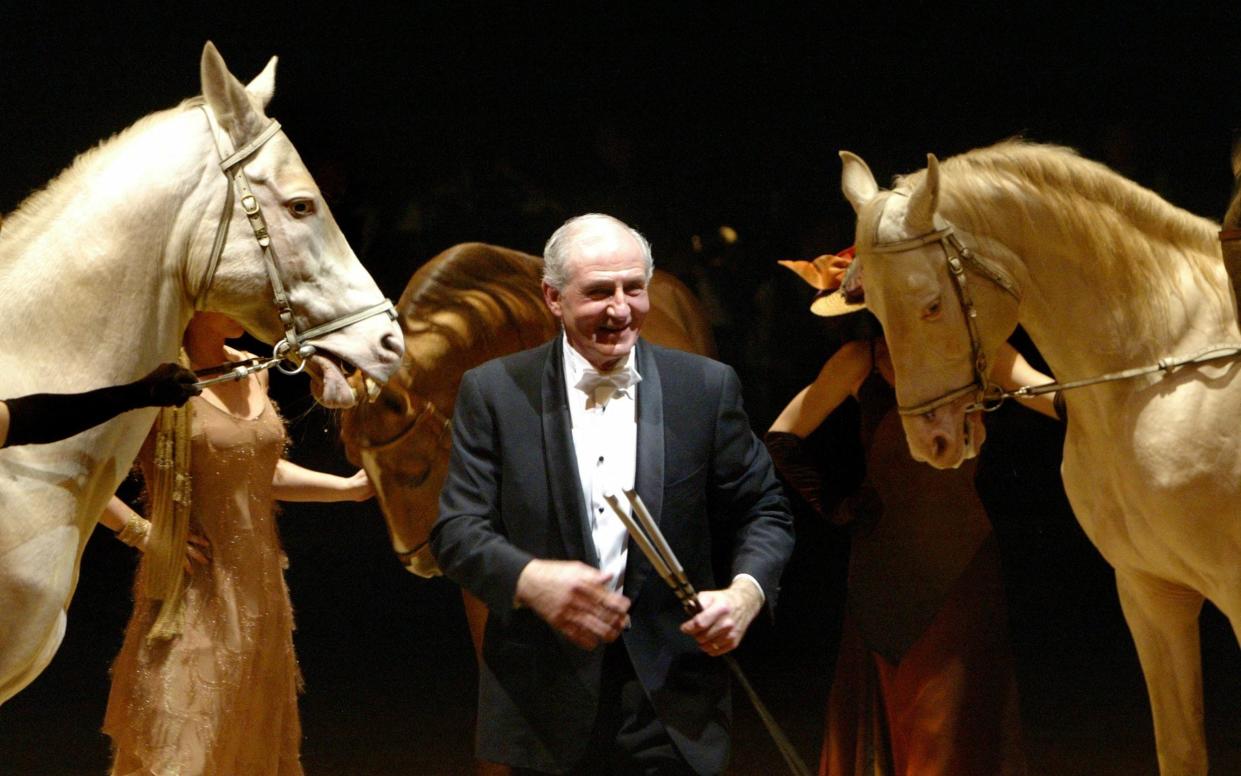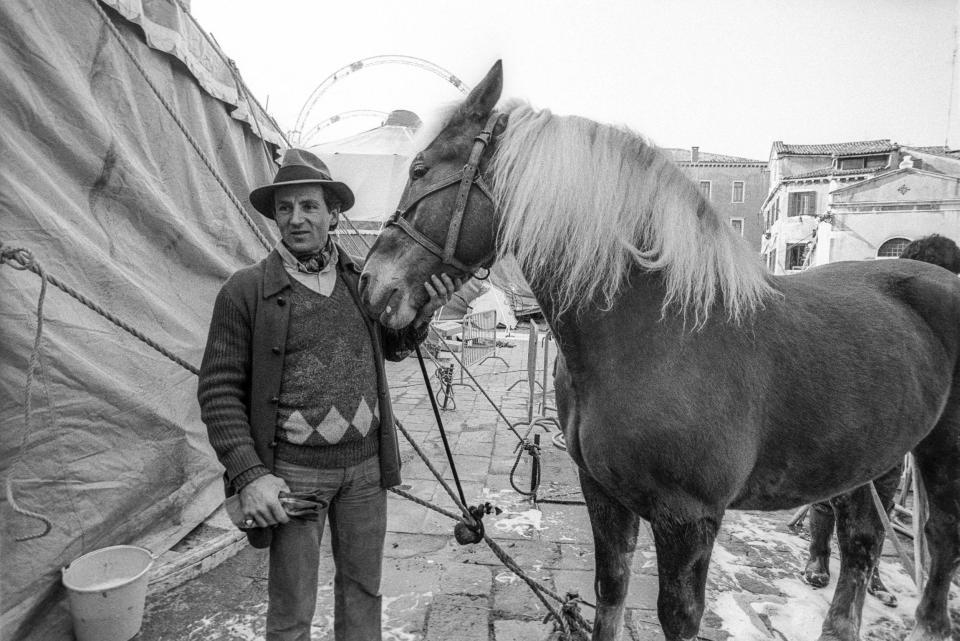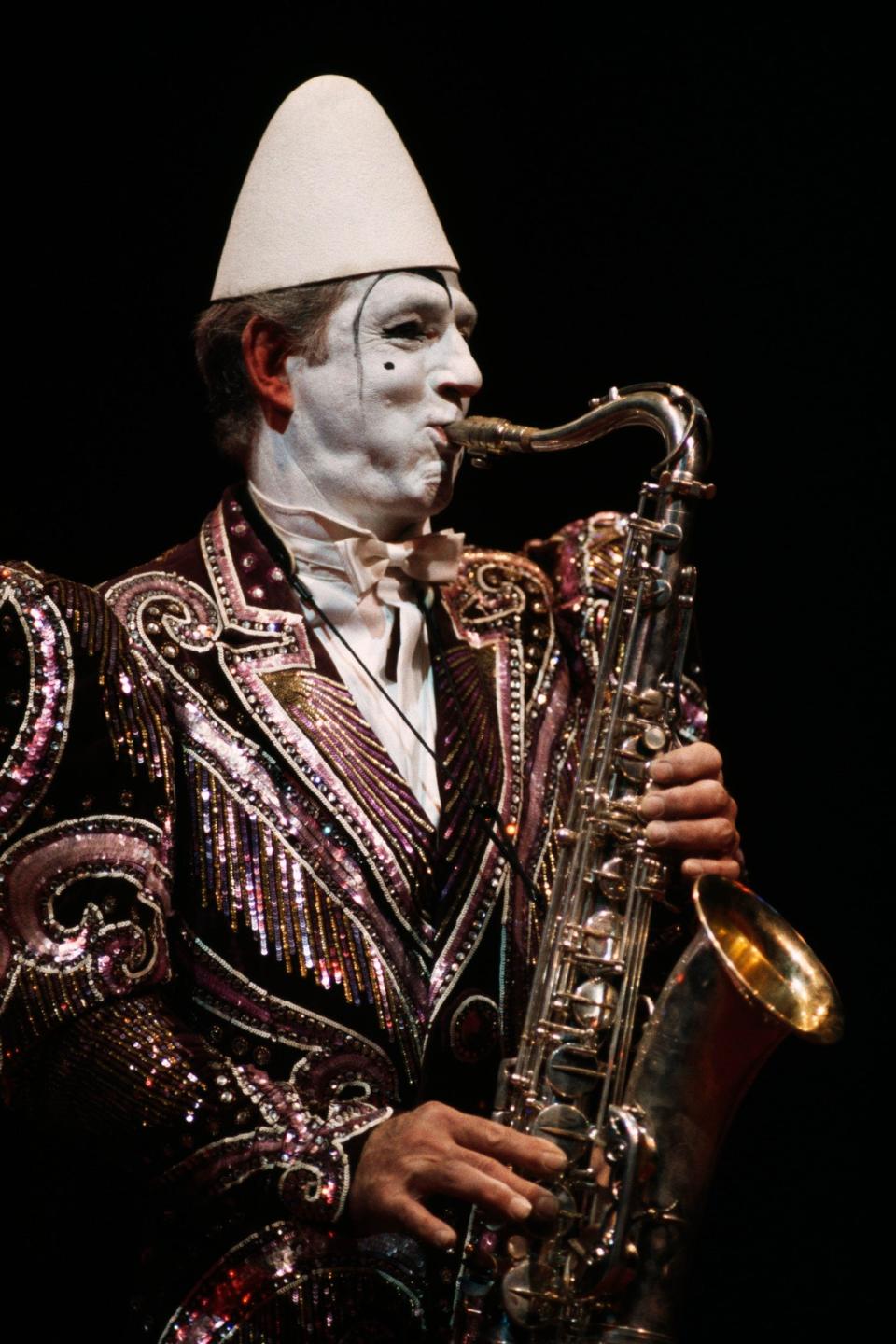Alexis Gruss, patriarch of the Big Top who led the revival of circus as an art form – obituary

Alexis Gruss, who has died aged 79, was born into one of the great big-top dynasties, a member of the fourth generation of a family of circus performers based in France that had begun working under the big top in the mid-19th century.
In 1974, at a time when traditional circuses were experiencing hard times, he and his wife Camille “Gipsy” Bouglione, a juggler and tightrope walker, founded Cirque à l’Ancienne, which revitalised the traditional family circus by focusing on acrobatics and the equestrian arts rather than animal training acts.
The Gruss show became France’s National Circus in 1981 when its name was changed to Cirque National Alexis Gruss. In 2019 it became Les Folies Gruss.
A master horseman likened to Nijinsky for the grace and style of his riding, Alexis Gruss, along with other family members, had an extraordinary talent for training horses which, according to one account, “they can get to do anything short of reciting passages from the Bible”.
Alexis Gruss revived 19th-century equestrian and acrobatic acts, known only to circus aficionados from legend or old prints, and worked with music arrangers and composers, choreographers and costumiers to elevate Gruss shows to the status of high art. He was a fine saxophonist, and in later years he and other family members would join in musical numbers with the circus orchestra.
In later years, throughout the winter, the circus played Paris before moving to Piolenc in the Vaucluse for the summer. “Though 10 of the 18 performers are family members, this is no ‘let’s do the show right here’ affair,” a Sunday Times travel writer observed in 2013.
“It’s a proper Parisian spectacle, with orchestra, hightech effects, glamorous costumes and jaw-dropping skills. There’s a mix of racy elegance, physical risk and that special circus sensation of witnessing spangled performers pushing themselves beyond what you thought was strictly possible. Kids are wide-eyed. So are adults. And it’s all the more affecting for being a family affair.”

The oldest of four children, Alexis Jacques André Gruss was born in a circus travelling wagon at Bart in the Doubs department of eastern France on April 23 1944 to André Gruss, who became famous as Dédé the clown, and Hélène, known as Maud Latour, who hailed from a fairground menagerie family.
The dynasty had been founded by Alexis’s great-grandfather, André Charles Gruss (1843-c. 1926), who fell in love with an Italian wire walker and equestrian, Maria Martinetti, and ran off with the circus. Alexis liked to say that he was the “product of an Alsatian stonecutter and an Italian horsewoman... sauerkraut and order on one side; spaghetti and whimsy on the other.”
The Grusses intermarried with other well-known circus families, among them the Robbas, Roconos, Beautours, Ringenbachs and, through Alexis’s marriage and that of his brother Patrick, the Bougliones.
Alexis made his debut in the family circus, then known as Radio Circus-Luxembourg, aged 10 in a “Western pastimes” number, and was later joined in the sawdust ring by his siblings, Bella, Patrick and Martine.

He was soon displaying his talent and versatility in a variety of acts, including the flying trapeze and as a sublime white-face clown partnering his father, Dédé. He also trained elephants, but it was for his equestrian skills, including liberty horse training, haute école and bareback riding that he became best known.
In 1970 he married Gipsy Bouglione, daughter of Firmin Bouglione, one of four brothers who ran the Parisian Cirque d’Hiver-Bouglione, the winter circus building which was used as the setting for Carol Reed’s 1953 film Trapeze.
Alexis and Gipsy’s Cirque à l’Ancienne made its debut in Paris in the summer of 1974 and was an immediate sensation. The same year, with the French actress Silvia Montfort, they founded the Ecole au Carré, the first French circus and mime school.
Alexis slowly built up his stable of horses, in early days sometimes rescuing promising specimens from the abattoir. By his death, his 50 horses and ponies ranged from pure-bred Arabs to Normandy Cobs and Shetland ponies – all of the finest quality.
Alexis Gruss toured widely around Europe. Among other notable acts, with his siblings Patrick and Martine he developed an English-style jockey riding act, which they performed on their sole visit to Britain, in November 1979, at the Circus World Championships.
In 1974, as public interest in the circus revived, Prince Rainier of Monaco had founded the International Circus Festival of Monte-Carlo as a leading showcase. At the second festival, Alexis’s uncle Alexis Gruss Sr received the Golden Clown award for his equestrianism, and at the 25th festival in 2001, Alexis Jr and his entire family won the Golden Clown, a Silver Clown and other awards – more than any other competitors in the event.
Just weeks before his death, at the 46th festival, his family again took a Golden Clown, while Alexis’s grandsons Charles and Alexandre won a Golden Clown for their juggling on horseback.
In 1981 Alexis Gruss won the Grand Prix National du Cirque, and he was a Chevalier de la Légion d’honneur, de l’ordre du Mérite agricole et des Arts et des Lettres. He continued to appear in the sawdust ring until his death from a heart attack.
He is survived by his wife and by two sons and a daughter, all of whom are involved in the circus. Another son, Armand, a bareback rider, acrobat and clown, died in 1994 aged 20 following an allergic reaction to a scratch from a domestic cat he had been training for an act.
Alexis Gruss, born April 23 1944, died April 6 2024

 Yahoo News
Yahoo News 
